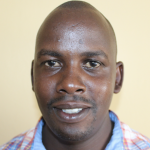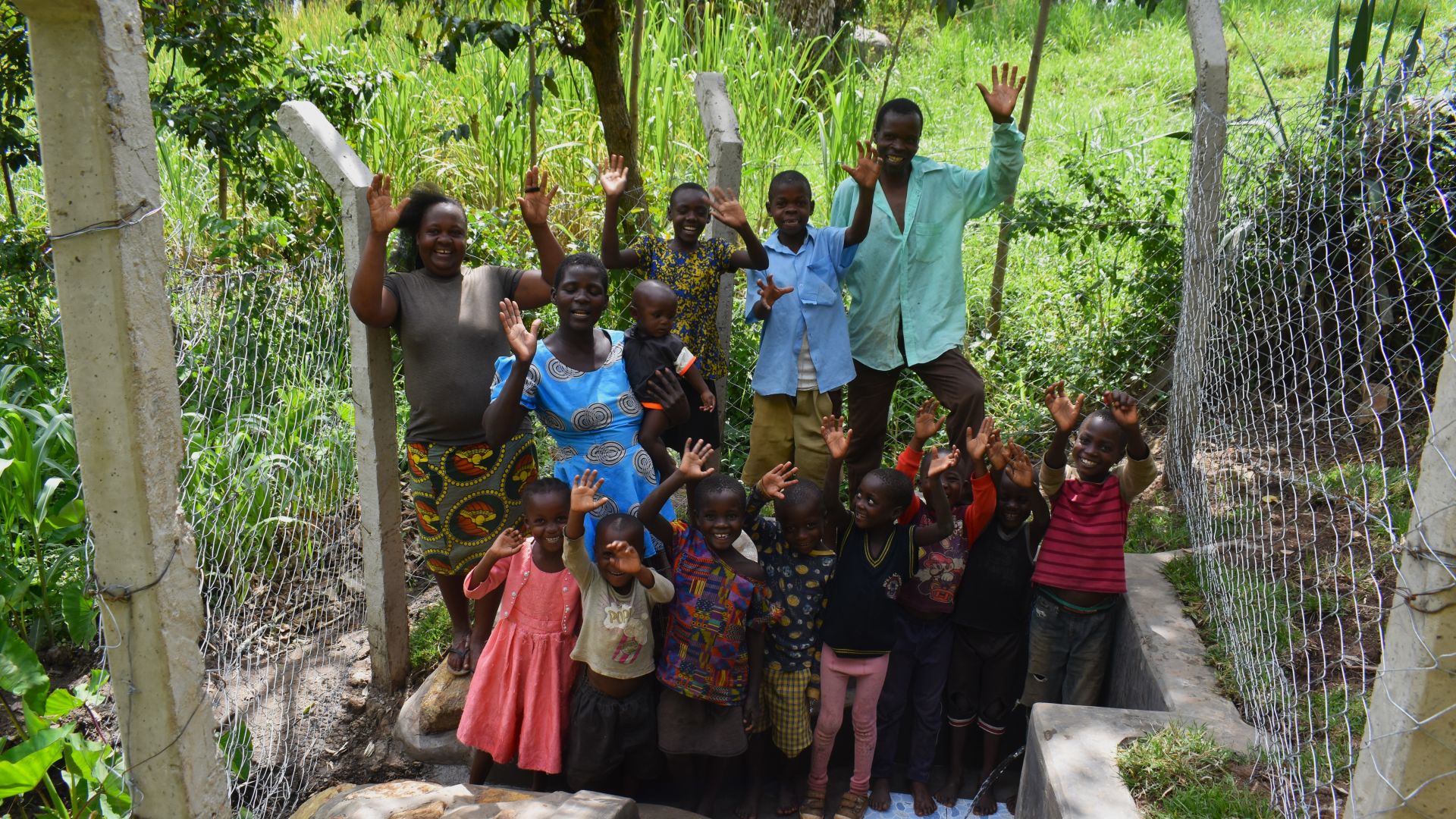The 140 residents of the Ebunuku Community struggle to access sufficient water. Their community water source, Matete Spring, is broken down, causing slow discharge and leaving them open to contracting water-related illnesses. It puts their lives and livelihoods at risk.

Child in the spring.
Field Officer Jonathon Mutai shared, "The current state of the waterpoint calls for action to bring it back to its original status. Water users currently struggle to fetch water as [there's] no discharge pipe to help them draw water with ease. A lot of water escapes from where the discharge pipe was removed. Instead, an iron sheet was placed to act as a discharge pipe. This makes users wait when drawing water."
The precious time spent collecting water takes away from other crucial tasks that this community needs to thrive. 47-year-old farmer Patrick Matete is familiar with the struggle.
 "The breakdown of this water point has brought numerous challenges to this community. Firstly, we waste a lot of time when fetching water as, at times, water may [be] diverted. The water itself is always prone to contamination because of the current status of [the] water point. I personally used not to drink boiled water, but the trend of increased water ailments made me opt for that since we don't have a chlorine dispenser at our waterpoint," Patrick shared.
"The breakdown of this water point has brought numerous challenges to this community. Firstly, we waste a lot of time when fetching water as, at times, water may [be] diverted. The water itself is always prone to contamination because of the current status of [the] water point. I personally used not to drink boiled water, but the trend of increased water ailments made me opt for that since we don't have a chlorine dispenser at our waterpoint," Patrick shared.

Patrick collecting water.
The time stolen from their livelihood isn't the only hard part about their water crisis. The illnesses that Patrick, his family, and the rest of their community contract from drinking contaminated water from the spring have devastating effects.

Community members waiting for their chance to collect water.
"The most recent case was my son contracting typhoid, a water-related disease which resulted from drinking contaminated water fetched from this water point. It was a difficult situation [for] me because, during that period, I had no money not only for medication but even for taking him to a health care center. It was through the help of my brother, who lent me some cash, and I borrowed a bicycle from a neighbor, which eased the challenge I had," Patrick shared.
"Drinking water that can harm me or my family is like investing where there are no returns at all. Instead, it is like burning resources at hand," he shared.
"Water-related illness is amongst the things that have paralyzed development in these communities. Whatever earnings that could have been used for constructive development is used in seeking medication for water-related ailments, making community members unable to provide for basic needs at times," he continued.

"The community is in dire need of [a] new waterpoint to help them from [the] current bondage of waterborne and water-related ailments which have drained them financially. Helping them to construct a new water point, will give them an opportunity to invest in a constructive development," added Jonathon Mutai.
Safe water consumption can change lives and restore these community members' time and health. Patrick will have time to work his farm and provide for his family without draining all of his resources on medication.
Steps Toward a Solution
Our technical experts worked with the local community to identify the most effective solution to their water crisis. They decided to safeguard the existing flowing spring.
Spring Protection
Springs are natural water sources that originate from deep underground. As water travels through various layers of the earth, it undergoes a natural filtration process, making it cleaner and safer to drink. To protect these spring sources from contamination, we construct a waterproof cement structure around layers of clay, stone, and soil. This design channels the spring water through a discharge pipe, facilitating easier, faster, and cleaner water collection.
Chlorine Dispenser
As an extra measure towards water quality safety, uniquely engineered chlorine dispensers are installed at all of our spring protection projects so community members can treat their water with pre-measured doses of chlorine. The chlorine treats any residual contamination and stays active for two to three days, ensuring water stays safe to use even when stored at home. Chlorine delivery and maintenance of the dispensers are part of our ongoing community support.
Community Education & Ownership
Hygiene and sanitation training are integral to our water projects. Training is tailored to each community's specific needs and includes key topics such as proper water handling, improved hygiene practices, disease transmission prevention, and care of the new water point. Safe water and improved hygiene habits foster a healthier future for everyone in the community. Encouraged and supported by the guidance of our team, a water user committee representative of the community's diverse members assumes responsibility for maintaining the water point, often gathering fees to ensure its upkeep.

 Protected Spring
Protected Spring
 Rehabilitation Project
Rehabilitation Project



































